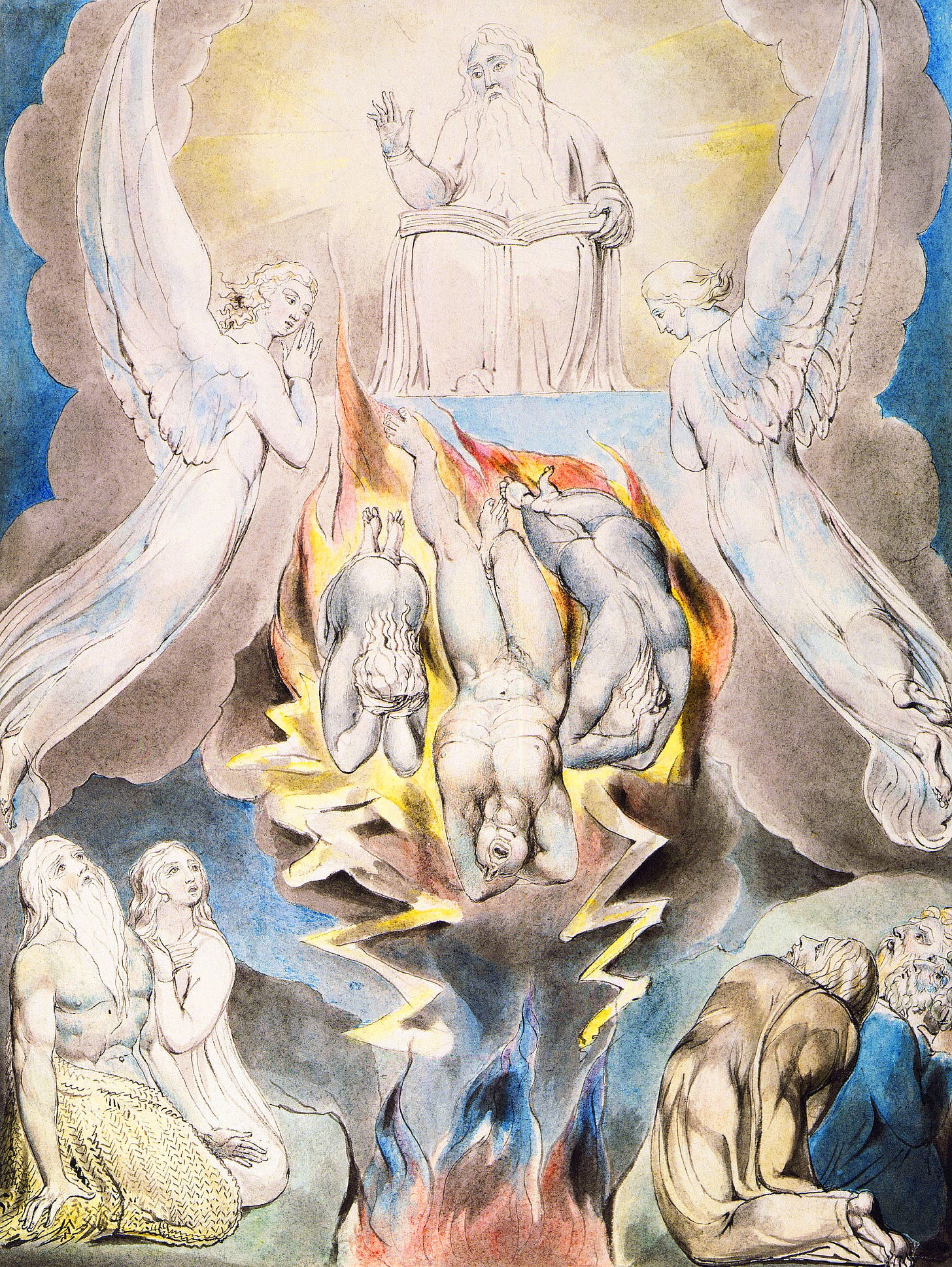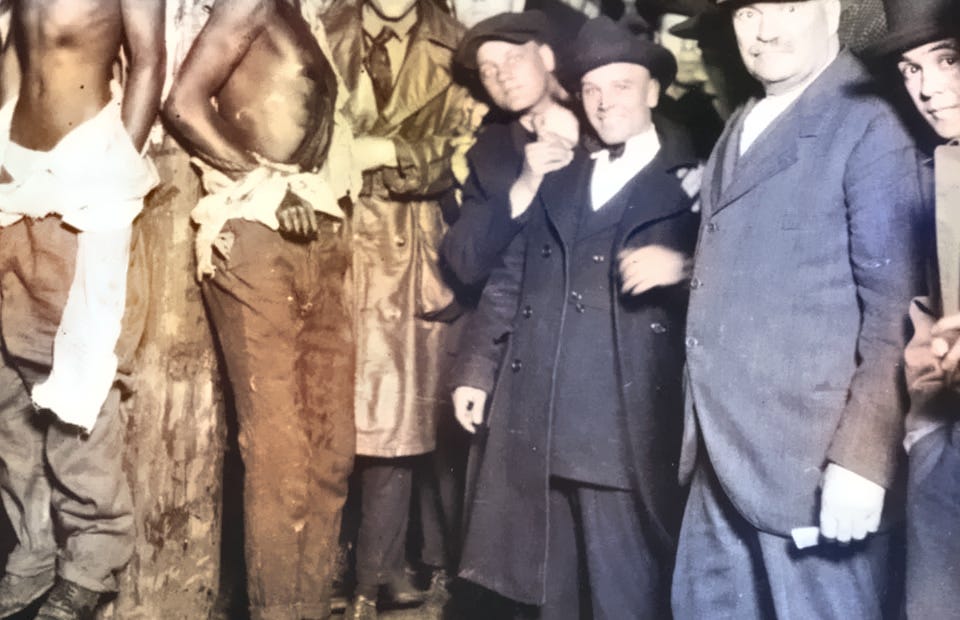Gabriel Kahane, America and the Book of Job
A friend asked me to comment on the mention of the Book of Job is a recent song, Gabriel Kahane's Empire Liquor Mart, from The Apartment Sessions. It turns out that Job is Black America.
There were those who claimed that Job did exist but that his sufferings are sheer literary inventions. Then there were those who declared that while Job never existed, he undeniably did suffer.
Elie Wiesel1
Nobody reads from the Book of Job
At the church where me and my grandma go
Nobody sees the trouble, I know
But I know that trouble's gonna find me
Gabriel Kahane
I had never heard of this artist until a friend asked me what I thought was the meaning of the lyrics' reference to the Book of Job, so I had a listen. I apologise for knowing so little about the songwriter, but I wanted to comment without the hindrance of knowing anything about who wrote the song or what he said about it himself.
It is a remarkable piece of storytelling, songwriting, and anti-racist popular art, but it does more than merely protest the death of one innocent black girl. Please listen to it.
In the meantime, this is what I found:
The story it tells is, of course, as it says in the notes to the video on YouTube:
On March 16, 1991, thirteen days after the Rodney King beating, Latasha Harlins was shot and killed during a dispute over a bottle of orange juice. She was fifteen. Her killer received no prison time.
The way he is telling this story (from the point of view of Latasha herself even after she has died) - a modern take on Dylan's The Lonesome Death of Hattie Carroll - is to generalise Latasha's story to apply to the whole sordid history of Amerikan racist violence, applying it to generations of Latasha's family, from the Grandmother in St Louis emigrating north to escape the violence and racism, but it nevertheless descending on the family time and again until Latasha herself is killed in the store, and the LA riots begin.
the accuser
Where Job comes in is that the blacks of Amerika in the song become a collective Job, being tried by God, in the form of ‘the Accuser’, who is named as such precisely and explicitly in the song, and who, in the original Hebrew of the Book of Job (that ‘no one’ in Latasha and her Grandmother's church ‘reads’) is `ha Satan - Satan, or Lucifer, to you or me. Satan has a bet with God that allows the former to destroy Job's family and everything he owns. In the same way:
She thought we'd moved
Beyond a sharecropper's debt
But we were just a pawn
In the accuser's bet
I mention Lucifer as well as Satan because I think he is involved in the lights in the sky that are repeatedly referred to - he is Lucifer, the Morning Star, burning as the stores burn (Latasha's killer's sentencing was the immediate prelude to the LA Riots of 1991).
Now two kinds of light from fires and fixtures
They fill the sky
It was never so bright when I was young
Latasha asks if this is all "just to keep God from getting bored", just as God made the bet with `ha Satan in heaven that leads to the death of all of Job's children and the destruction of all he knows. God bets Satan that Job will not give up his faith and curse God. Does God fear that Black America will curse him too? Must all black children die in the cauldron of their testing in Amerika before God is satisfied?
non serviam
The song attempts to do something like Elie Wiesel does when he applies the story of Job to the Holocaust. The political point in Wiesel and others is that Job - contrary to Church propaganda that says he patiently awaits God and comes to accept his suffering - is actually full of anger, and does not accept the violence and destruction aimed against him with God's connivance. He is innocent but repeatedly dragged down. He submits to God, as he should, but he does not accept his suffering, even as the generations of blacks in Amerikkka have had to bear the violence of white racial supremacy inflicted on them. We look to the day when Satan is finally evicted from heaven, as William Blake depicted in his Illustrations to the Book of Job, when the light will be in the sky all over again. But it will be a different light.
I may have extrapolated a little from the original in some of the details toward the end, but it is what it is…
American friends, remember to vote.

When the black and whites arrive
I am lifeless on the floor
Crumpled dollars in my hand
In my hand, in my handThe lady in the fishing vest
Has dropped the gun
Who wears a fishing vest
When they're working at a liquor store?I float up to the corner
Just above the ice cream
And the frozen food
I perch beside the surveillance cameraOnly days after the trial
You could feel the tension rise
In the street and in the rhythm
Of despair, of despairIt was war after a while
In each neighbor's tired eyes
There was nothing to persuade them
To stand down, to stand downI float higher and higher
Friendly with the clouds
That cover SouthlandI watch the tender skyline dancing
Oh, the terror
On the long night
On the long fight
Blood, glass, burnt hairThese angry armies quick advancing
In position
On the rooftops, in the culverts
Stores are sacked while no one's thereNow two kinds of light from fires and fixtures
They fill the sky
It was never so bright when I was young
I was too young to dieOn TV sets, in houses effortlessly done
In fancy colors
All the righteous, all the newsmen
Speak of end timesWhy should they give a fuck
Some angry little black girl took a bullet?
Lord have mercy, Lord have mercy
On the ones who've done the crimesNow two kinds of light from fires and fixtures
They fill the sky
It was never so bright when I was young
I was too young to dieIf I float even higher
Pattern and procession are uncovered
Flood and fire, flood and earthquake
Keep folks unmooredAnd the occasional celebrity car chase
Woo, woo, woo, woo!
Just to keep God, just to keep God
From getting bored, from getting boredNow two kinds of light from fires and fixtures
They fill the sky
It was never so bright when I was young
I was too young to dieWhen my Grandma was a young woman
East St. Louis
She thought the town was no good to usShe took a Greyhound
Just as far as it could take her
Felt her maker in the waves
You know, how God moves through usI was six years old when we followed
My mother was twenty two
The light was magic
The light was trueShe thought we'd moved
Beyond a sharecropper's debt
But we were just a pawn
In the accuser's betNobody reads from the Book of Job
At the church where me and my grandma go
Nobody sees the trouble, I know
But I know that trouble's gonna find meThree years later on the Thanksgiving
The light turned bitter
My grandmother didn't know what hit herWe got a chill from the cold white sun
Momma found herself staring
At the barrel of a gunThat weren't enough, my uncle died too
Shot through the chest back in East St. Louis
So one fine day my grandma lost two
Took me in her arms and said, it's just me and youNobody reads from the Book of Job
At the church where me and my grandma go
Nobody sees the trouble, I know
But I know that trouble's gonna find meNobody reads from the Book of Job
At the church where me and my grandma go
Nobody sees the trouble, I know
But I know that trouble's gonna find meIt will find me
It will find me
It will find me
…So when I say that my untimely death
Was something certain
What I mean is that these tragedies
Are a kind of family traditionSo when I walk into the liquor store that morning
Bright and angry
In a daydream of a boyfriend
I was fifteenPick up a bottle of orange juice
And put it into my backpack
Head toward the counter with dollar bills
And she accuse me of stealing thatShe pull my sweater
And so I hit her
Put down the bottle
Don't want no troubleNow two kinds of light from fires and fixtures
They fill the sky
It was never so bright when I was young
I was too young to dieNow two kinds of light from fires and fixtures
They fill the sky
It was never so bright when I was young
I was too young to dieI suppose it's no surprise
To find myself about to die
But how long that silver moment
From the bullet to the floorThat right there was a lifetime
La da, da, da, da, da, da, da, da, da
Elie Wiesel, Messengers of God: Biblical Portraits and Legends, New York: Tandom, 1996, p215.



